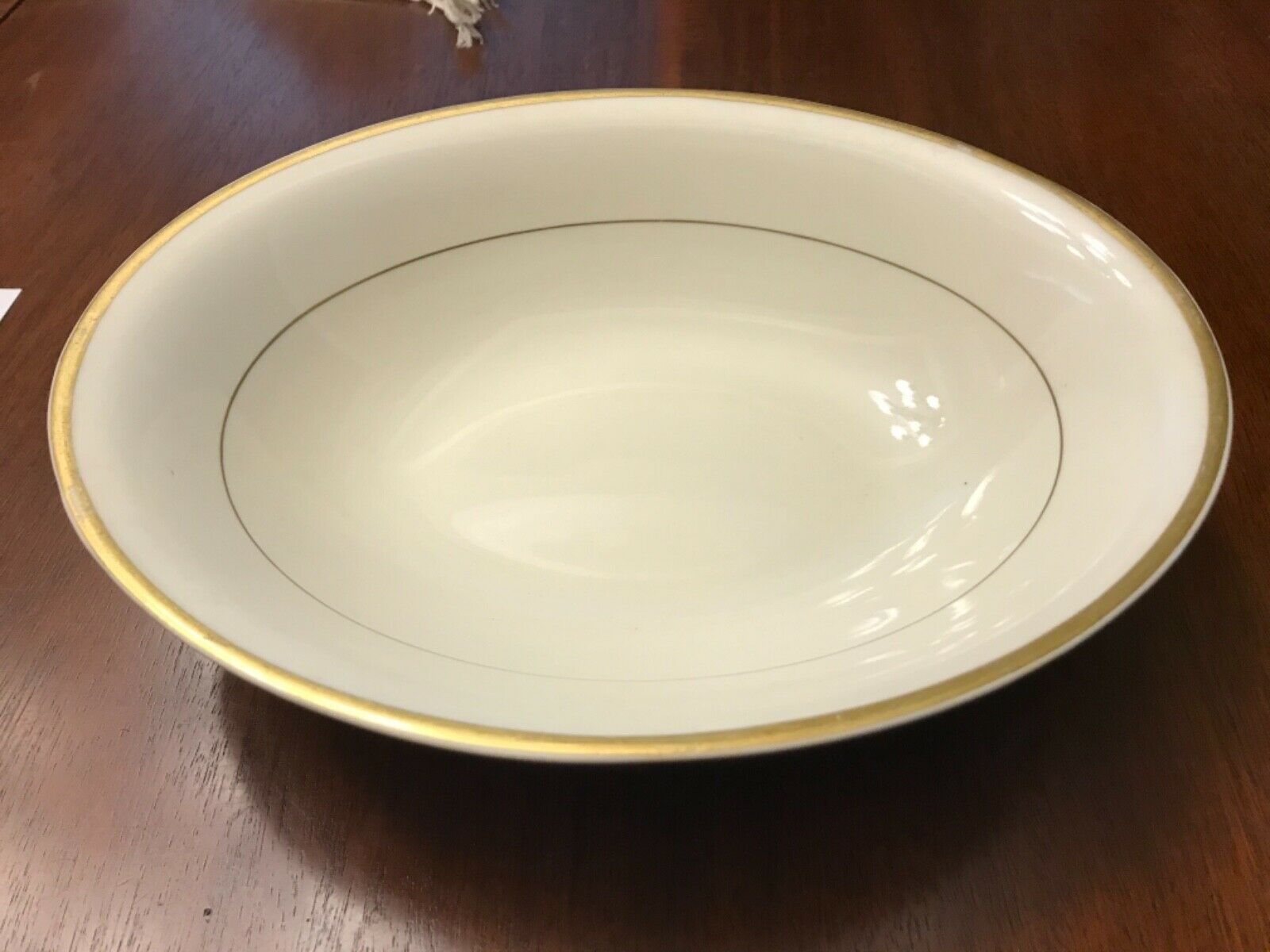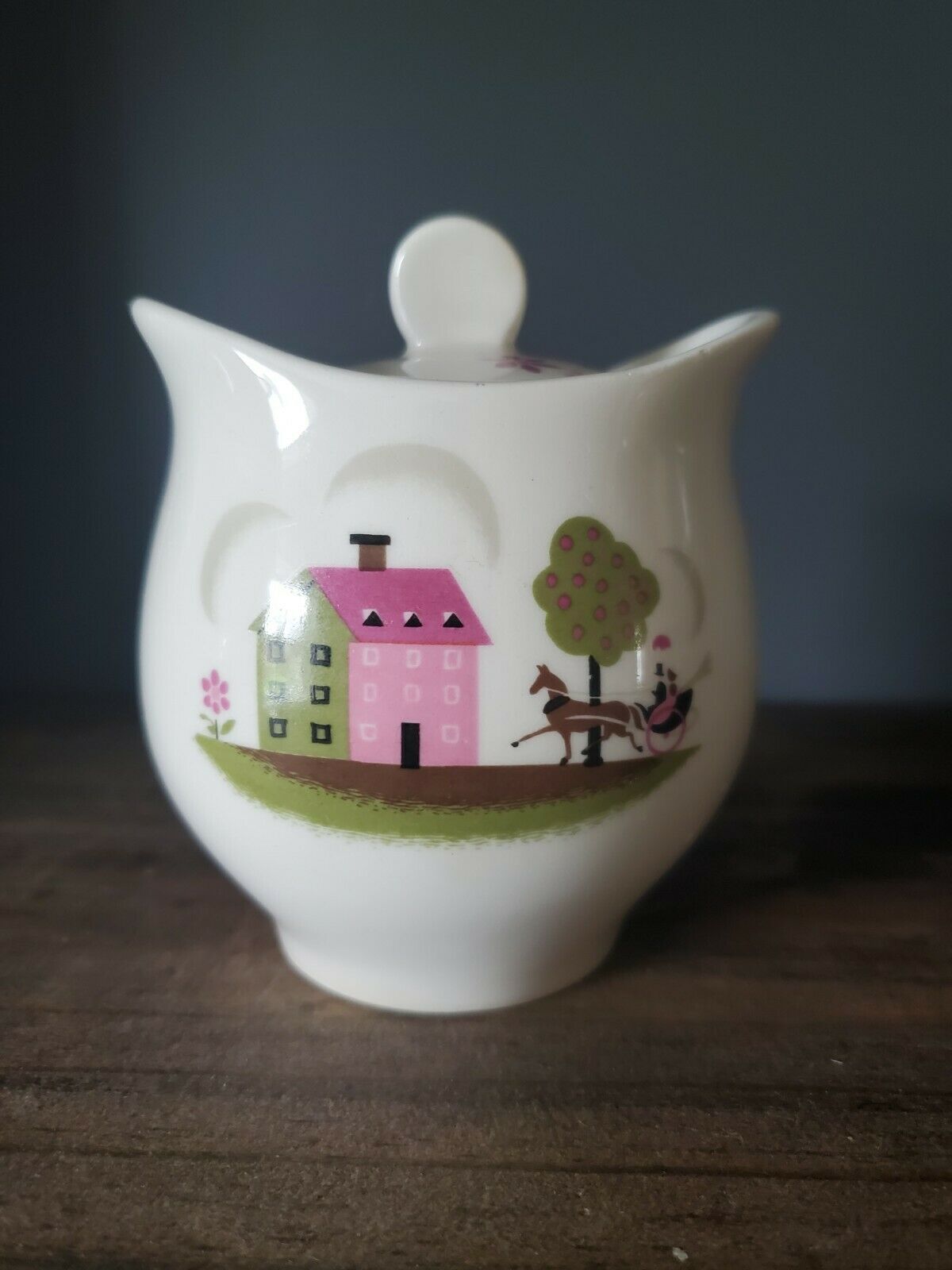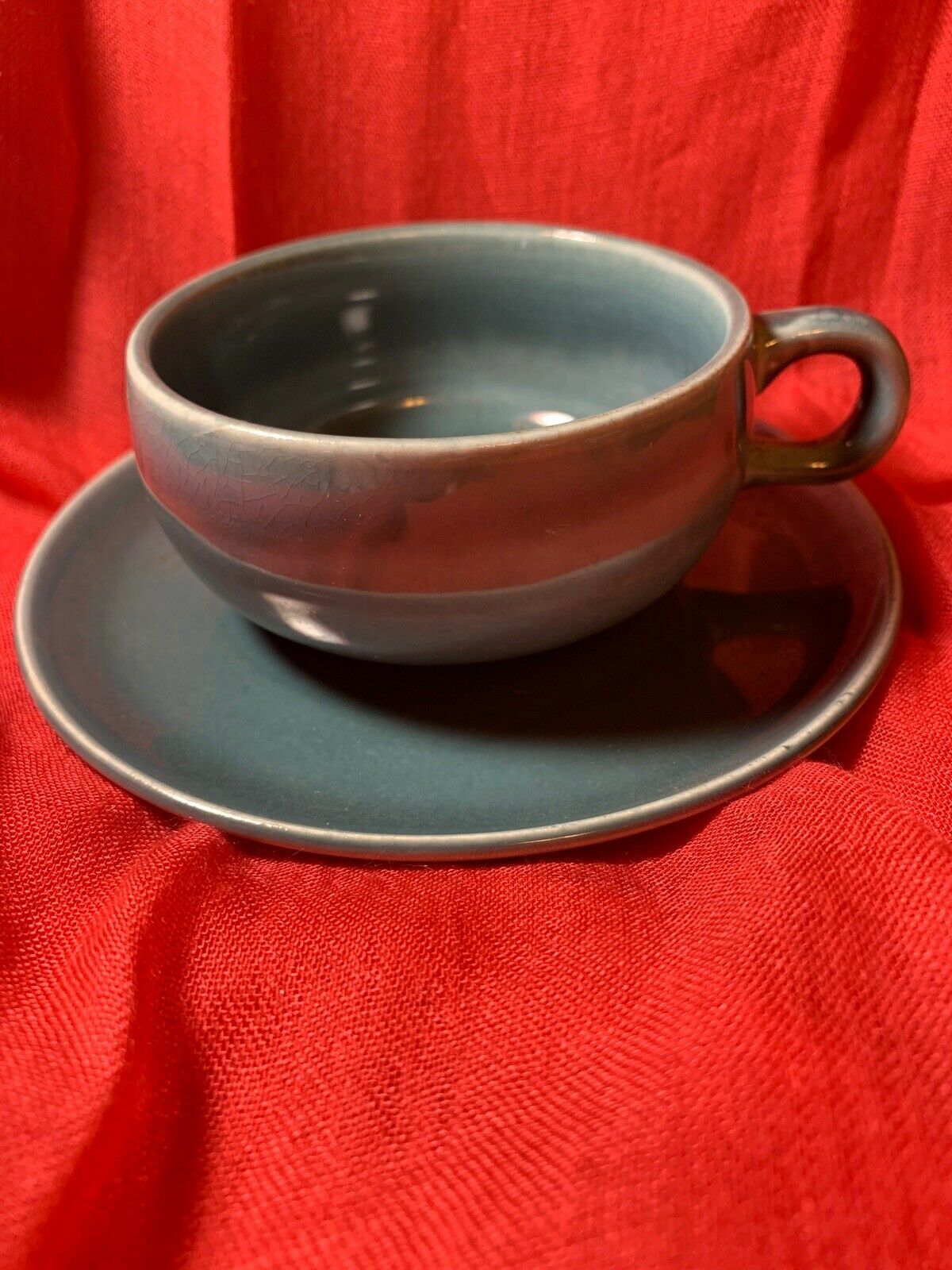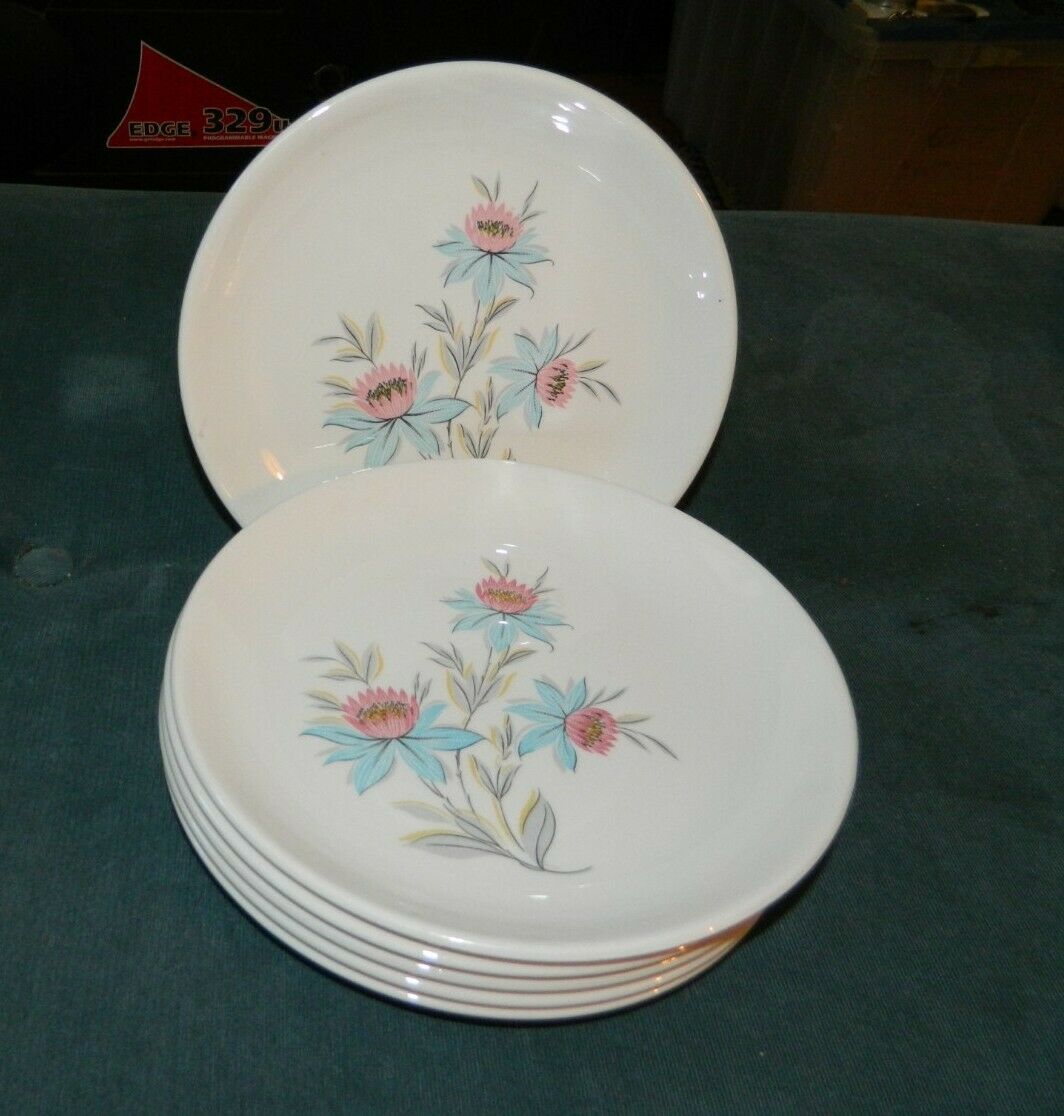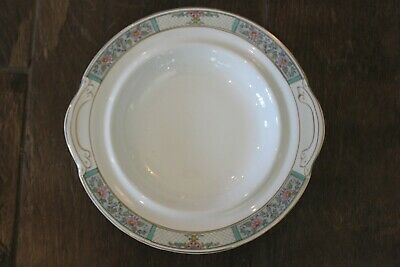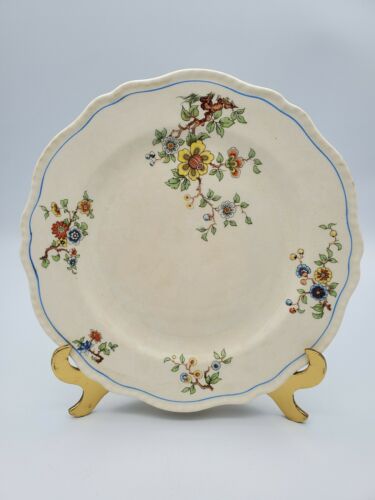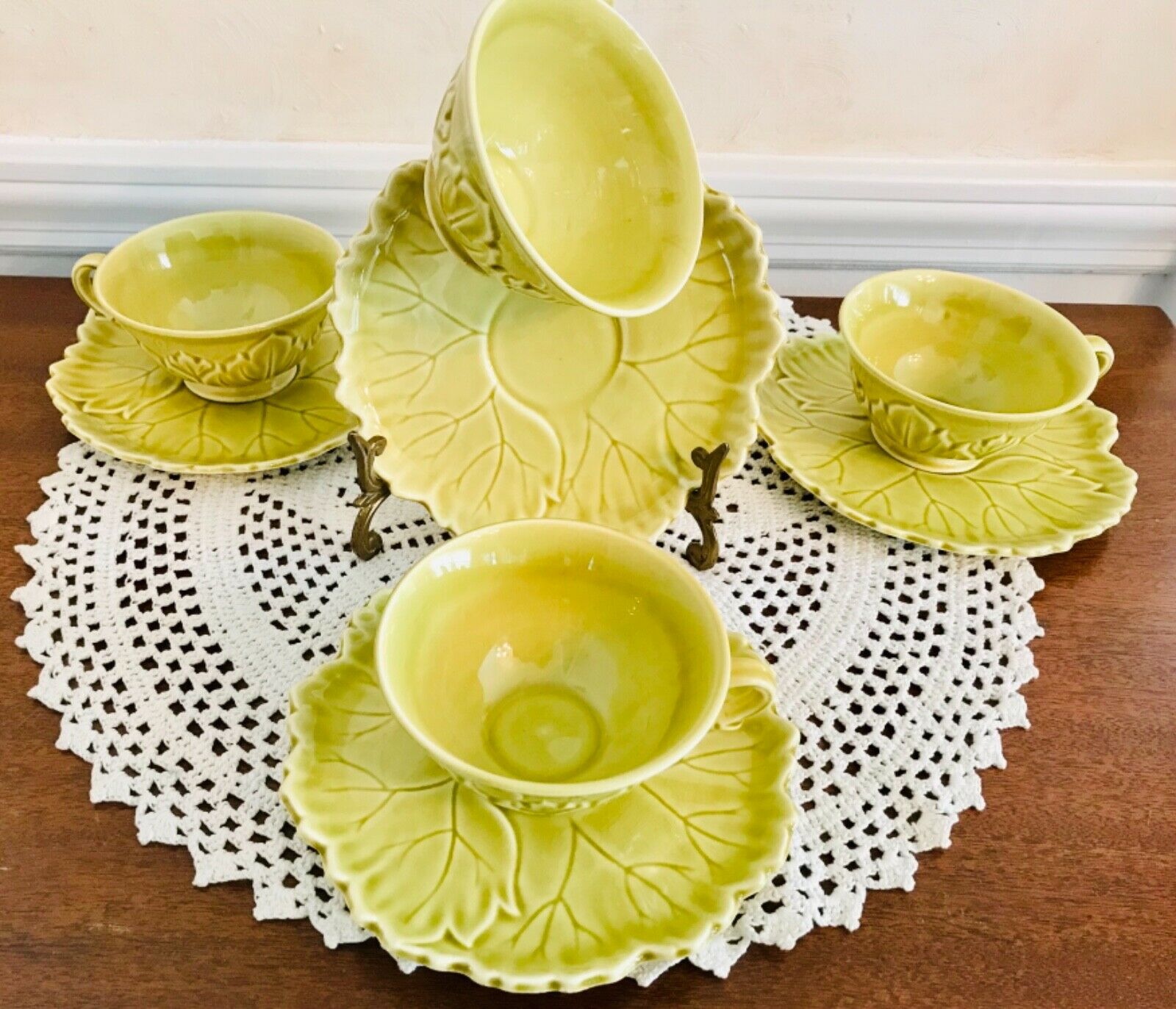-40%
Raymor Contempora Charcoal By Steubenville SIX Teacup And Saucer Sets MCM Scarce
$ 39.6
- Description
- Size Guide
Description
Contempora Charcoal by RaymorSix Cup & Saucer Sets
by
STEUBENVILLE
Description:
Charcoal, Black Wavy Lines, Raymor Line
Pattern:
Contempora Charcoal by Steubenville
Status:
Discontinued.
Designer: Ben Seibel
Size Cups: 5-1/8 in. L x 4-1/8 in. W x 2-1/8 in. H
Size Saucers: 6-1/8 in. Diameter x 7/8 in. H
Weight Set, unpacked: 4 lbs., 10 oz.
Condition: All Excellent, with the exception of (1) cup, which presents with a scratch / abrasion under rim (see last two pics). Else, no chips, cracks, hairlines, or restoration.
Raymor
was the brand name of an import company and distributor based in America and active from 1941 until 1980. Although it imported most of its stock, it also oversaw the manufacture of a comparatively small quantity of goods in the US. During its lifetime, Raymor worked with many leading American, Italian, and Scandinavian designers and the companies they worked for. The company entity was incorporated as Russel Wright, Inc in 1936 and was liquidated on April 8th 1980.
Raymor was built by the American entrepreneur
Irving Richards
(1907-2003), who was born
Irving Rappaport
in Manhattan, New York. He became one of the most influential figures in mid-late 20thC design, and was at the cutting edge of popular American tastes during the period. He grew to understand the US buyer, their tastes and their homes, so knew what they would buy.
Ben Seibel,
born in Newark, New Jersey in 1918, grew up in Manhattan, where his mother started a shop in Greenwich Village selling her own jewelry and fashion designs. Seibel began pursuing a degree in architecture at Columbia University after studying painting under
Louis Schanker
and sculpture under
Leo Amino.
After putting his education on hold for a three-and-a-half year term of service in the Air Force, Seibel returned to New York City in 1945, enrolling at Pratt Institute with a concentration in industrial design. He never completed his degree, instead starting a studio that he maintained alongside a small staff until his death in 1985 at the age of 67. Seibel is best known for his tableware designs, drawing influences from his study of sculpture and travels in Japan.










